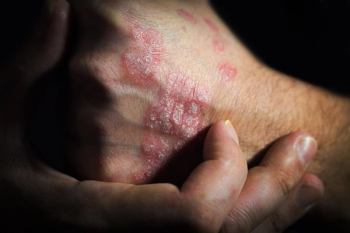
Dr Patrick Burnett Discusses Risk Factors for Adverse Behavioral Health, QOL in Psoriasis
Patrick Burnett, MD, PhD, FAAD, chief medical officer of Arcutis Biotherapeutics, discussed key factors associated with poor behavioral health issues and quality of life among patients with psoriasis.
Severity, location, and symptom burden of
Transcript
Can you discuss risk factors for adverse behavioral outcomes in patients with psoriasis?
I think the extent of the disease that a patient has is really important in that, as well as the location, and then their symptoms. So, if we think about those 3 factors, the extent of disease—obviously if a patient only has the typical plaque psoriasis locations and it's a very low percentage of their overall body surface area (BSA) or maybe it's in an area that is easily hidden from public viewing during their regular week, then the impact of that on their quality of life may be somewhat less. We certainly see a correlation between that and more severe disease, and severe disease usually means higher BSA. And so that's one aspect that I think is important.
The other one is the location. So, we talked about intertriginous psoriasis as a key location. Obviously, and even in our
And then the third aspect, I would say, is really the symptoms. So, if a patient is very symptomatic, and the number one symptom is itch in psoriasis, then that's going to have an impact on their quality of life and can kind of repeatedly disrupt their normal activities throughout the day because they're focusing more so on their psoriasis than on what they're meant to be paying attention to in their work or in caring for their family or whatever it is that they spend their day doing.
Newsletter
Stay ahead of policy, cost, and value—subscribe to AJMC for expert insights at the intersection of clinical care and health economics.
















